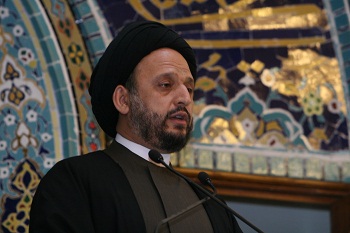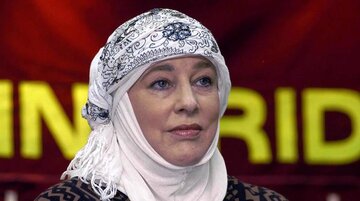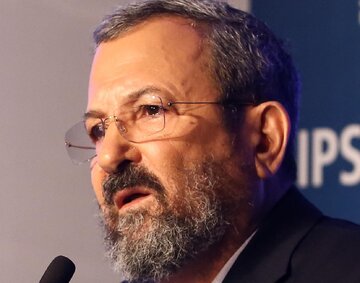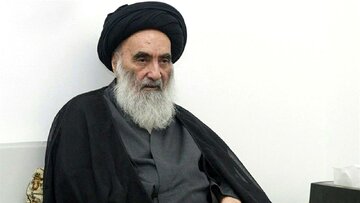His Eminence, Sayyed Ali Fadlullah, delivered the two Friday prayer sermons at the Imamain Al-Hassanain Mosque, 11 Rabi’ I 1436 H. – January, 02nd 2014. Several prominent religious scholars, dignitaries and thousands of believers attended the Jumu’a prayer.
The Messenger (p.) who honored humanity and enlightened its path did so not by means of a power or a rule, but through the sustained achievements that Allah enabled him to accomplish. He who studies the Messenger’s life will not find it difficult to pinpoint the fundamental turning points that radically changed the society at his time: from darkness to light, from slavery to freedom, from backwardness to progress and development, from fighting and fragmentation to unity and cooperation, and most importantly from despising man to honoring him.
We ask ourselves today: By what method did Muhammad (p.) accomplish all that? And what was his message? And what did he call for? We need not only ask such questions once more, but we also have to grasp their answers, for it seems, as we can all see, that there are some emerging distorting answers, which is preventing one from understanding the essence of the Islamic call. Going back to the era of the dawn of Islam drives us to ask: Were Muhammad to come in our age, how would he explain his Message to those who do not know it? To learn the answer, let us listen to the Messenger (p.) defining his Message to everyone who asked him about it. Let us recall what he said to Assad Bin Zurarah who came to Mecca seeking the support of its people in the war of his tribe (Khazraj) against the Aws tribe: In his answer to Assad’s question: “O Muhammad, what do you call for?” the Prophet said: “I call you to testify to the unity of God and to my prophethood. Ascribe no associates to Allah; do good to your father and mother; do not kill your children through fear of poverty. Abandon open and secret sins; put no one to death unjustly; touch not the property of orphans except to improve it; let your weight and measures be perfect; speak according to justice and truth; incline not to one side to favor a kinsman, and fulfill your covenant with God. This is the message God sends you, perhaps you will remember it”. Upon hearing these words, the light of faith entered Assad’s heart, and he instantly exclaimed: “I testify that there is no God but Allah, and I testify that you, O Messenger of Allah (p.), are His apostle. May my father and mother be your sacrifice! I am of Yathrib, of the tribe of Khazraj. Between us and the tribe of Aws the bonds of friendship are broken. If God should reunite them by your means and restore peace between us, none would be more esteemed among us than yourself”.
He then asked the Prophet to send a person with him and his companion to teach the Quran and call their people to embrace the faith of Islam. The Messenger accordingly sent with them Mus’ab bin Umair, and since then the foundations of Islam were established in Yathrib and then in the rest of the world.
Religion: Unification and morals
Had the Prophet been with us today, he would have given the same answers, for they describe what true Islam is. Moreover, the Prophet’s answers define Islam as being based on two pillars: unification and morals. He did not present it as rituals, but rather as a binding association between worshipping Allah alone and ethical principles. Allah says: “Surely those who believe, and those who are Jews, and the Christians, and the Sabians, whoever believes in Allah and the Last day and does good, they shall have their reward from their Lord, and there is no fear for them, nor shall they grieve” (02:63).
Thus, believing in God is necessary as a framework that defines the course, the vision and the future, but while it is the first pillar of faith, the second is morals. Those who do not believe in God but enjoy good morals are, in God’s view, in a different place, just as those who believe but do not have good morals are also in another place, even if they describe themselves as believers, knowing that the latter’s fault could be more critical than that of the former.
The crisis of our definition of religion
The crisis that we are plunged in nowadays is the clearest indication to the crisis of our definition of religion. We have voided religion of moral values, which are no longer present in our understanding of the aims of our acts of worship and the aims of the legal rulings and the role and objectives of religion in our life.
On the birth anniversary of Muhammad (p.), we should reinvigorate the morals of the Prophet of Morals in all the aspects of life, whether individual, social, political, economic or educational. Morals should be the criterion in every field. Those who research in the field of theology shoulder the responsibility of not looking into the domain of morals and delaying it to the advantage of studying rulings and technical details, which are important, but if they were not coupled with morals, they will turn into rituals and formalities.
When God presented His Prophet, He did not present him as a worshipper, despite the fact that he has prayed until his feet became swollen. He presented him as one with “sublime morals” and wanted morals to be the practical demonstration of what Muhammad (p.) had brought along. Let us emulate the Messenger as the Quran instructs us: “Certainly you have in the Messenger of Allah an excellent exemplar for him who hopes in Allah and the latter day and remembers Allah much” (33:21).
/149





